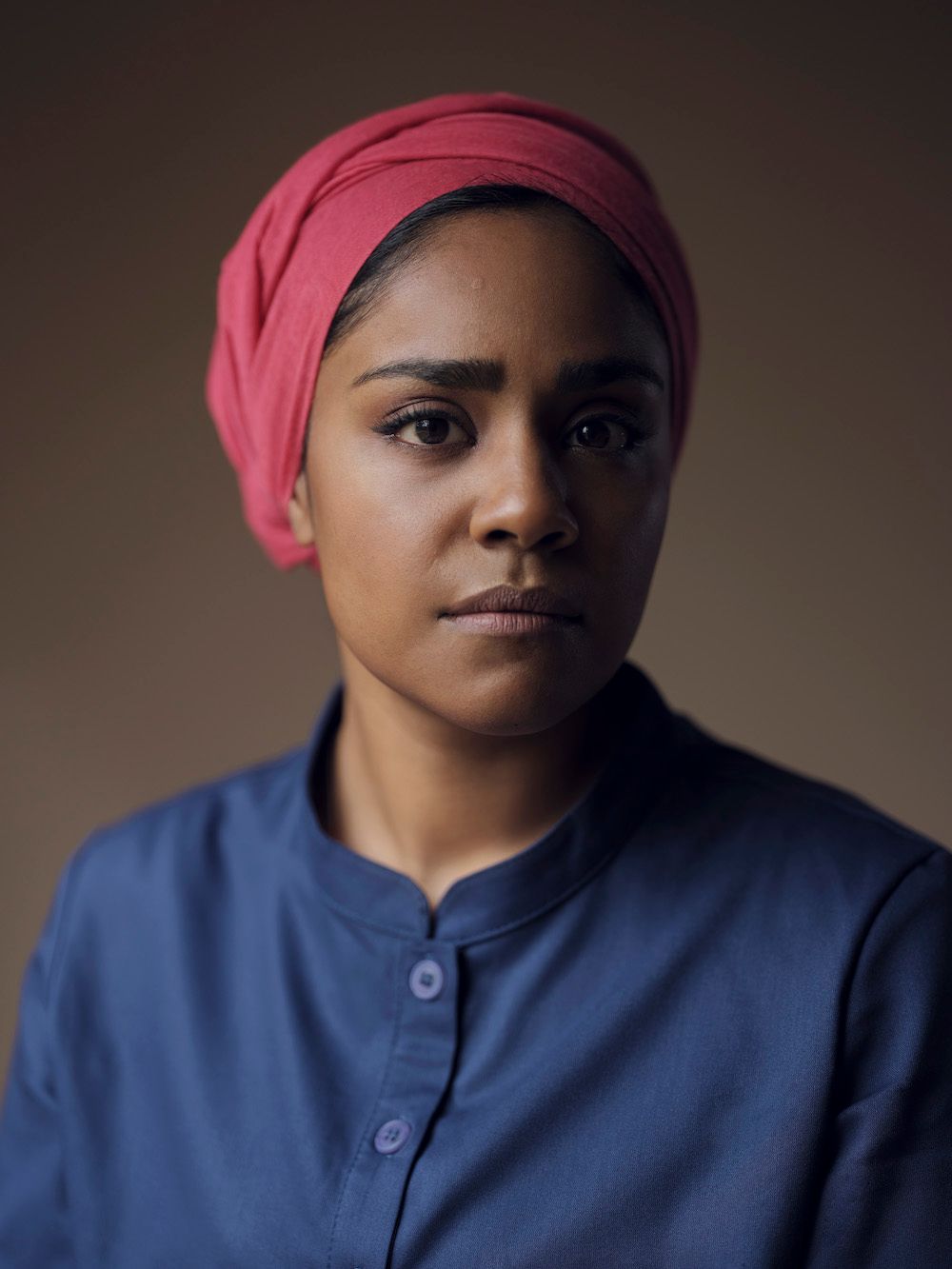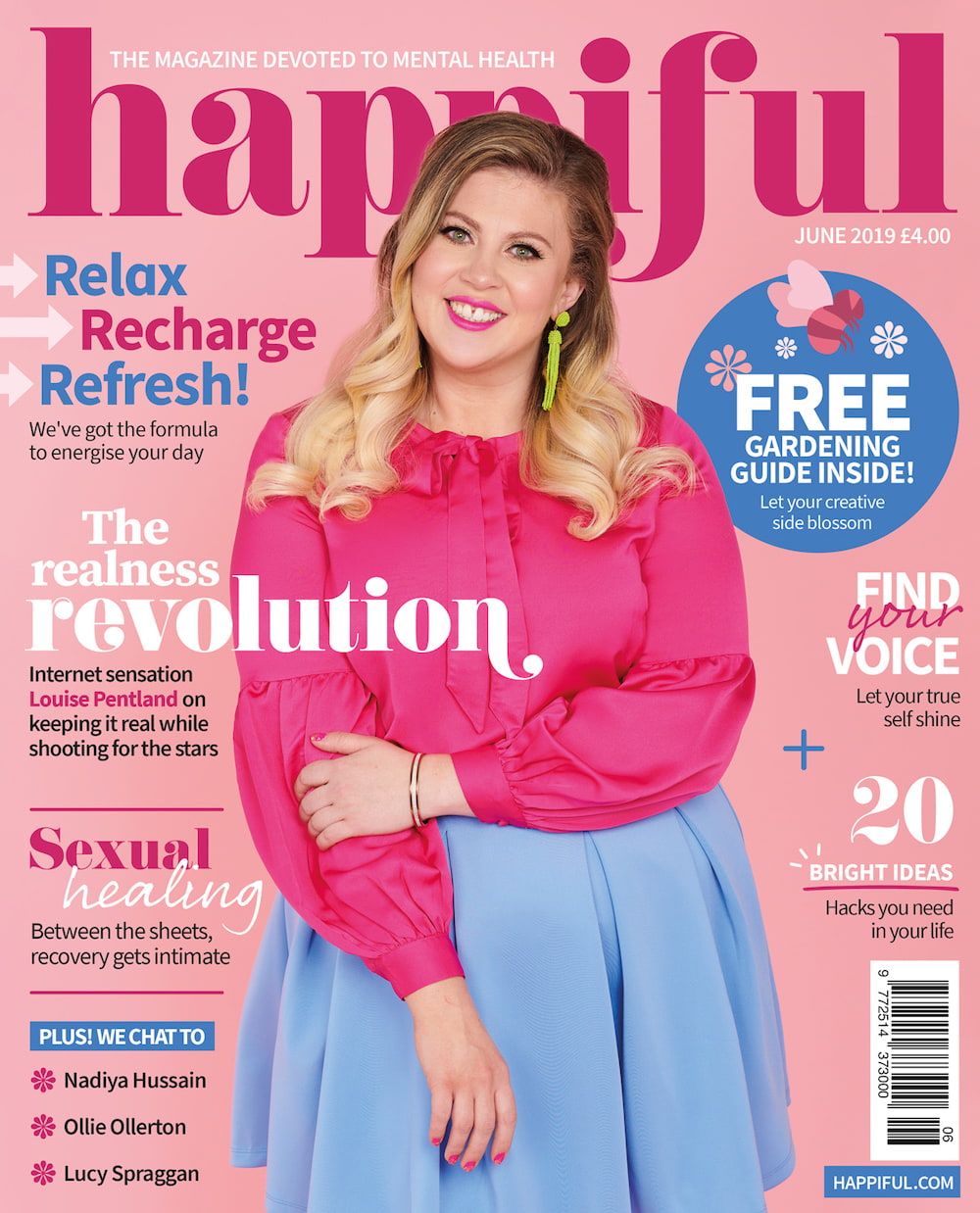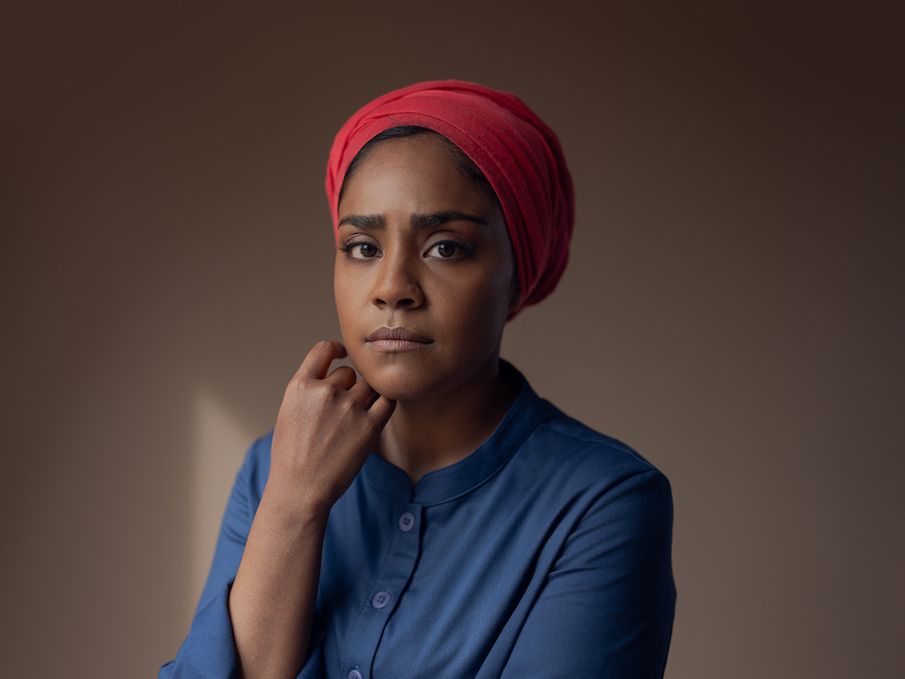Nadiya Hussain is on a mission to tackle the taboos around mental health, starting with her own. In her new BBC documentary, she explores the condition that has plagued her since she was seven years old, and her ambitions to ensure no child suffers in silence in the future
Nadiya Hussain became a firm household favourite in 2015, when she first appeared on our screens as a contestant on the much-loved The Great British Bake Off. Her baking brilliance, megawatt smile, and rapport with contestants and judges alike, meant that when she won first place, the nation wanted more. Books, columns and TV programmes soon followed.
Nadiya’s widespread appeal is in part due to her resolute centering of her own family life in all that she does. A glimpse at her website reveals her life before GBBO; from growing up in a busy household in Luton with her five siblings, to her marriage to Abdal, the birth of their beautiful children Musa, Dawud and Maryam, and the moment her husband encouraged her to enter the baking competition. Abdal, she says, was confident in her ability, and wanted to see her fly despite her own misgivings.
The rest, we know…

Images | BBC / RAW / Phil Sharp
Or do we? Because, actually, that’s not the whole picture. Nadiya’s story to date, also includes the presence of ‘a monster’; her name for the crippling anxiety she has lived with since childhood. She has panic disorder – a condition that can be debilitating, exhausting and isolating.
For those who have followed Nadiya’s progress from contestant to chef, author and presenter, panic disorder might not be a something you’d associate with her warm, friendly and seemingly outgoing persona. The fact is any of us could be living with mental illness and challenges, regardless of how we, and our lives, appear from the outside.
Now, Nadiya wants to open up a conversation around her own mental health, along with how we collectively view mental illness. In spite of the anxiety and panic disorder that could hold her back, she is forging ahead. An hour-long special, Nadiya: Anxiety and Me, developed with the BBC, will be released in May to coincide with Mental Health Awareness Week, and it’s a must-watch.
The programme has been a long time coming for Nadiya: “I’ve had the idea for the past two years. I really wanted to make this documentary, but one of the hardest things to do when you have a mental health issue, like panic disorder, is to talk. It’s tough to say: ‘I’m not well.’
“From the very beginning, aged seven, there have been so many opportunities for me to say it and I haven’t. So I do know how hard it is. It can take decades to speak out and admit there’s a problem.”
Nadiya says the attention she receives, both positive and negative, made her wary of speaking out initially, but she got to a point last year where she simply felt she had to talk “right now”, and reached out about making the documentary. But, the end result was still “by far, one of the hardest things [she’s] ever had to do”.
It’s understandable why the project was so difficult. The nature of panic disorder and anxiety can mean that conversations regarding the thoughts and sensations you experience during an episode, can trigger you. In this film, Nadiya shares not only the fact that she has the disorder, but how and when it started, along with the impact it has on her daily life, relationships, and career.
One of the hardest things to do when you have a mental health issue, like panic disorder, is to talk
But alongside the difficult aspects, the process came with some truly positive moments for her. One being when looking online at the list of symptoms for panic disorder with Abdal. “For me, the realisation was at that point – it’s an illness! Even though a doctor tells you, ‘You have a panic disorder,’ somehow, it does not seem real because it has become the person you are. That was always ‘just my personality’. It was a real lightbulb moment to understand what I experience is an illness.”
To address her panic disorder, Nadiya agreed to see a therapist, and for her sessions to be filmed. This was the first time that she’s had therapy as an adult, having previously had just one cognitive behavioural therapy (CBT) session on the NHS when she was 18. She notes: “That was all that was allotted at the time, and at that age, I couldn’t afford more.”
The therapy she received on the programme helped Nadiya to explore the origins of her panic disorder, and to question her coping methods and routines. This could, understandably, feel quite overwhelming.
To read more of Nadiya's exclusive chat with us, pick up the June issue of Happiful in supermarkets from Thursday 16 May.
'Nadiya: Anxiety and Me' will air on BBC One at 9pm on Wednesday 15 May, as part of a series of programmes around Mental Heath.
To keep up to date with Nadiya, follow her on Twitter @BegumNadiya or visit nadiyahussain.com

3 Ways to Get Happiful Magazine
Happiful shop: Can't see your copy of Happiful in a store near you? Head to our online shop.
In-store: Pick up your copy in Waitrose, Tesco, Morrisons, WH Smiths Travel, Asda or selected newsagents. Find a store near you.
Online: Happiful is completely free to read digitally. To get our June issue in your inbox this Thursday, subscribe now.


Comments